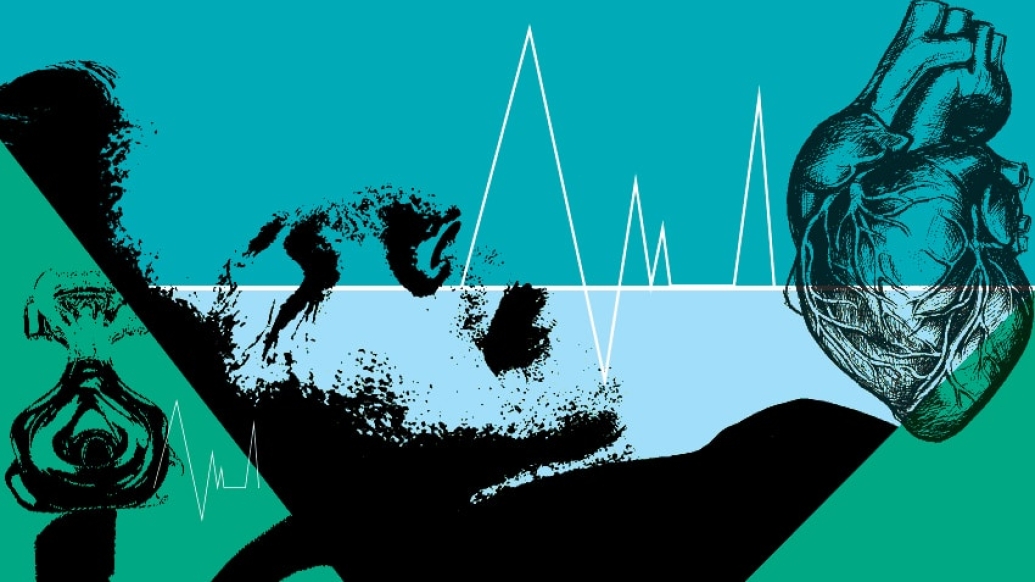Research points to a strong link between obstructive sleep apnea and atrial fibrillation. Learn why treating both conditions is crucial.
7:00 AM
Author |

After diagnosing a patient with atrial fibrillation, a doctor might recommend testing for obstructive sleep apnea, or OSA.
MORE FROM MICHIGAN: Sign up for our weekly newsletter
The reason: "Obstructive sleep apnea is highly associated with atrial fibrillation," says Krit Jongnarangsin, M.D., an electrophysiologist at the University of Michigan Frankel Cardiovascular Center.
Atrial fibrillation, or Afib, affects an estimated 6 million Americans. It is an arrhythmia characterized by a quivering or irregular heartbeat that can lead to stroke and other heart-related complications.
Although atrial fibrillation can have a range of causes — age, heart disease and hypertension among them — research reveals a strong link between Afib and OSA.
About half of Afib patients have OSA.
People with OSA experience a blockage in the airway, or restricted breathing, for 10 seconds or longer during sleep. The condition can range from mild to severe, based in part on the number of times each hour that a patient stops breathing.
Sleep apnea risk factors
Jongnarangsin recommends that patients diagnosed with Afib be assessed for the following risk factors associated with OSA:
-
Excess weight
-
Narrowed airway
-
Chronic nasal congestion
-
Smoking and alcohol use
-
Age (OSA is more common after age 40)
-
Gender (OSA is more common in men)
-
Family history of OSA
Further examination is needed if risk factors are found.
"We refer them to a sleep specialist, who will screen the patient and, if OSA is diagnosed, recommend continuous positive airway pressure (CPAP) treatment," Jongnarangsin says.
Treating both conditions
CPAP treatment involves wearing a mask during sleep. The mask conducts pressurized air through the nose, or through the nose and mouth, to the throat. The added pressure in the throat then keeps it from collapsing during sleep to enable normal breathing.
SEE ALSO: How Chronic Snoring Can Cause Heart Disease
A patient's Afib is treated in conjunction with CPAP treatment, says Jongnarangsin.
The treatment for Afib is often catheter ablation, a minimally invasive technique in which a catheter is threaded through the blood vessels and into the left atrium of the heart, where radiofrequency or cryo energy is applied to the heart muscle to cauterize the "short circuits" in the heart's electrical system that are generating the Afib.
That method is most effective when combined with CPAP adherence.
"Ablation is more successful in patients who are using CPAP for their OSA," Jongnarangsin says. "If a patient is diagnosed with OSA but not treated for it, the Afib recurrence following ablation is much higher than in patients without obstructive sleep apnea."
That's why it's crucial for Afib patients and their health care providers to discuss the possibility of OSA — and, if detected, to treat both conditions.

Explore a variety of health care news & stories by visiting the Health Lab home page for more articles.

Department of Communication at Michigan Medicine
Want top health & research news weekly? Sign up for Health Lab’s newsletters today!





